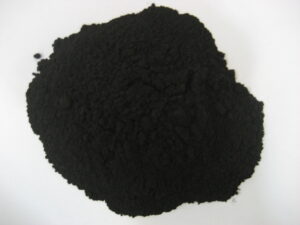A Complete Commercial Guide
Gilsonite, also known as natural asphalt or uintaite, is a rare, natural hydrocarbon resin extracted mainly in the United States. Because of its unique chemical composition and wide range of uses, it plays a critical role in industries such as oil and gas, construction, paints, and ink production. However, gilsonite is available in different qualities, and understanding these variations ensures buyers choose the most effective grade for their applications.

Why Gilsonite Is Valuable
Gilsonite combines strength, flexibility, and chemical stability, making it an ideal additive and binder. Unlike synthetic resins, gilsonite is naturally occurring and cost-effective, which gives companies both performance and sustainability benefits. In addition, its compatibility with other materials expands its applications across industries.
Key advantages of gilsonite include:
-
High carbon content and purity
-
Excellent bonding and waterproofing properties
-
Thermal stability and resistance to chemicals
-
Versatility across multiple industrial sectors
Different Qualities of Gilsonite
1. Drilling-Grade Gilsonite
Drilling-grade gilsonite is widely used in oil and gas exploration. It strengthens drilling mud, prevents fluid loss, and stabilizes wellbores under extreme conditions. As a result, it reduces downtime and operational costs for energy companies.
Key Qualities: High softening point, excellent sealing ability, effective fluid loss control.
2. Asphalt and Construction-Grade Gilsonite
This quality is blended into asphalt and concrete to enhance performance. Roads and pavements with gilsonite last longer, resist cracking, and withstand heavy traffic. Moreover, its natural waterproofing properties make it valuable in roofing materials.
Key Qualities: Strong bonding, improved durability, weather resistance.
3. Ink and Paint-Grade Gilsonite
Ink and paint manufacturers rely on gilsonite for its intense black color and glossy finish. It provides excellent dispersion, making inks more stable and coatings more resistant. In addition, it reduces the need for synthetic pigments, lowering production costs.
Key Qualities: Deep black pigmentation, smooth dispersion, cost efficiency.
4. Foundry-Grade Gilsonite
In metal casting, gilsonite serves as a carbon additive that improves mold release and surface finish. It burns cleanly and reduces casting defects, which leads to higher-quality products.
Key Qualities: High carbon content, clean burning, improved casting performance.
Choosing the Right Gilsonite Quality
When selecting gilsonite, businesses should evaluate three main factors:
-
Application – drilling, construction, ink, or foundry use
-
Softening point – higher points for drilling, lower for pigments
-
Purity level – refined grades deliver more consistent results
By matching the correct grade to the right industry, companies achieve better performance and higher returns.
Commercial Benefits of Gilsonite
Using gilsonite provides businesses with clear advantages:
-
Cost-effectiveness – natural and versatile, reducing reliance on expensive alternatives
-
Enhanced performance – improves strength, stability, and quality in end products
-
Eco-friendly option – derived from a natural mineral resource
